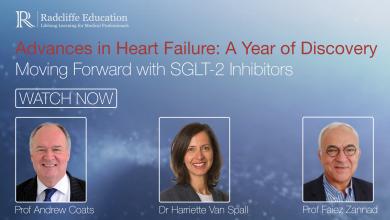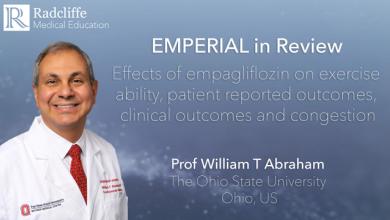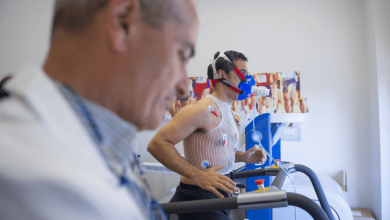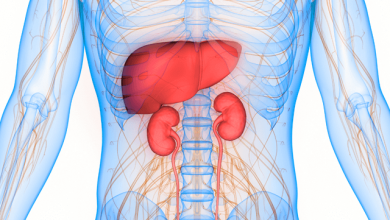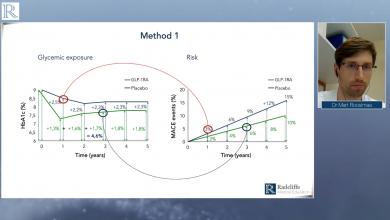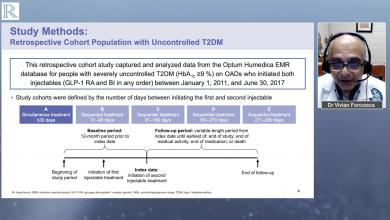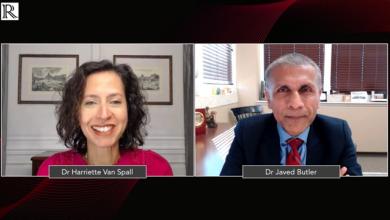In This Section:
Diabetes
CV Outcomes in Diabetes
Risk reduction with antihyperglycaemic therapies
Cardiovascular (CV) disease remains the leading cause of morbidity and mortality in patients with type 2 diabetes (T2D).
The opportunity for CV disease prevention in patients with T2D has recently expanded with antihyperglycaemic agents demonstrating significant reductions in the risk of major adverse cardiovascular events (MACE). Although the exact mechanisms of CV benefit remain uncertain, they appear to be unrelated to the direct glucose-lowering effects. These agents have triggered a shift beyond glucose control, to a broader strategy of comprehensive CV risk reduction.
CV specialists are well-positioned to play a key role in managing patients with T2D, including screening, aggressively treating CV risk factors, and incorporating the use of antihyperglycaemic agents into routine practice.

Section Advisor
Professor Mikhail N Kosiborod
Saint Luke's America Heart Institute, Kansas City, MO, US
The Radcliffe diabetes and CVD risk program is supported by an educational grant from Novo Nordisk.

Video Series
Andrew JS Coats, Harriette Van Spall, Faiez Zannad, et al
Video
Recent Videos
Broadcast
Holger Nef, Kambis Mashayekhi, Miroslaw Ferenc, et al
Video
Harriette Van Spall, Javed Butler,
Video Series
Andrew JS Coats, Harriette Van Spall, Faiez Zannad, et al
Video Series
Martin R Cowie, Faiez Zannad, Sanjay Kaul, et al
Clinical publications
Lee MMY, Brooksbank KJM, Wetherall K, et al. Circulation 2020; epub ahead of press.
Shim CY, Seo J, Cho I, et al. Circulation 2020; epub ahead of press.
Congress Updates
Anker SD, Ponikowski P, Wanner C, et al. Virtual HFSA Annual Scientific Meeting 2020.
Itzhak B, Standl E. Virtual EASD Annual Meeting 2020.
Packer M, Butler J, Anker SD, et al. Virtual EASD Annual Meeting 2020.
Nassif ME, Qintar M, Windsor SL, et al. Virtual HFSA Annual Scientific Meeting 2020.
Ongoing trials
Cox ZL, Collins SP, Aaron M, et al. Am Heart J 2020; epub ahead of press.
Yin D, Hui Y, Yang C, Xu Y. Medicine (Baltimore) 2020;99:e22660.
Review articles
Khan MS, Butler J, Greene SJ. Circ Heart Fail 2020;13:e008030.
Pinto LC, Rados DV, Remonti LR, et al. J Clin Endocrinol Metab 2020;105:dgaa534.






